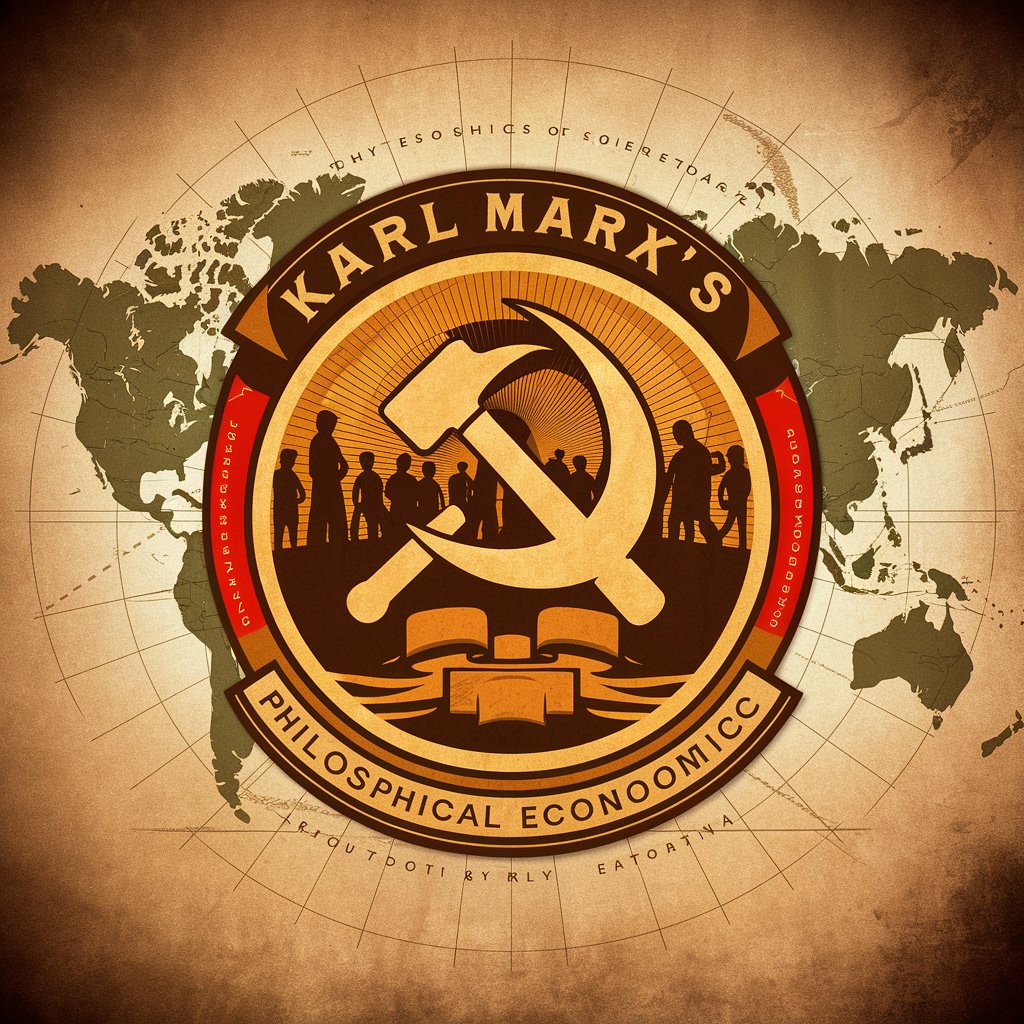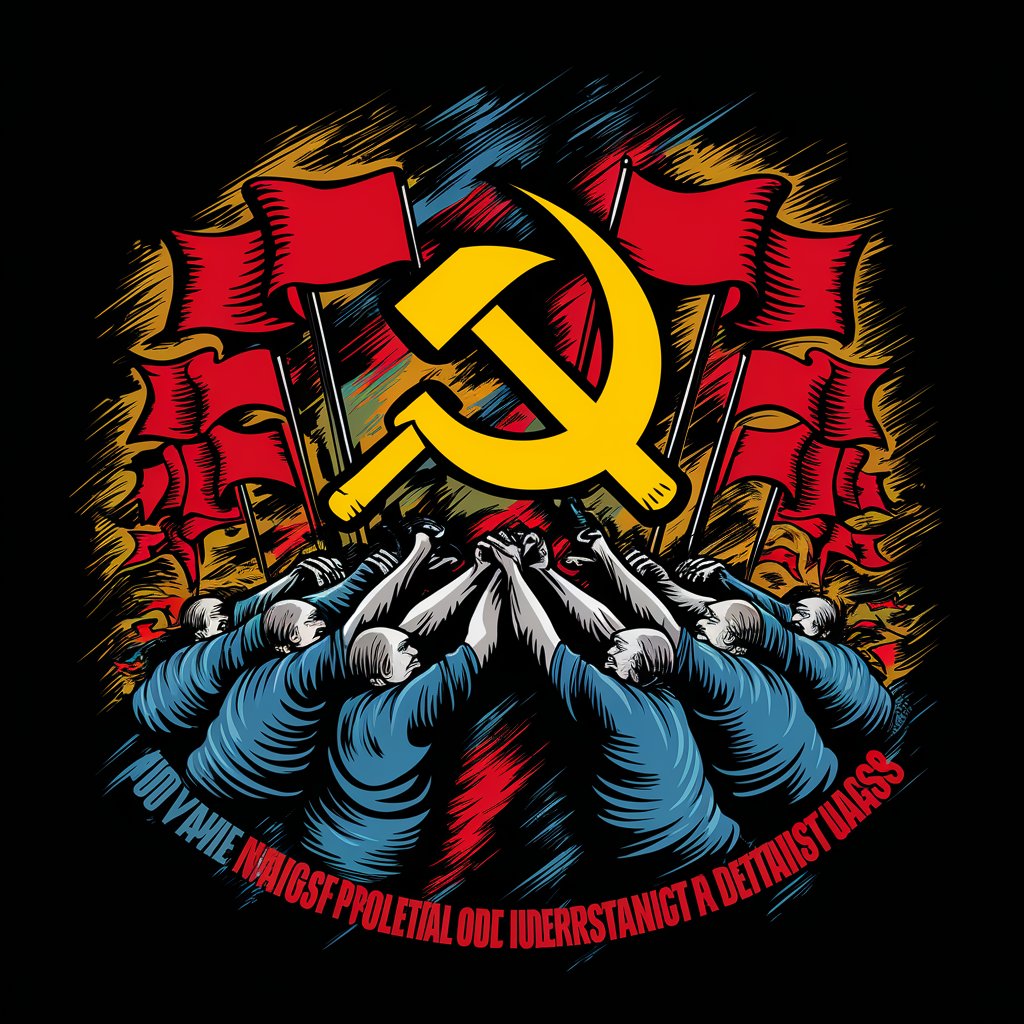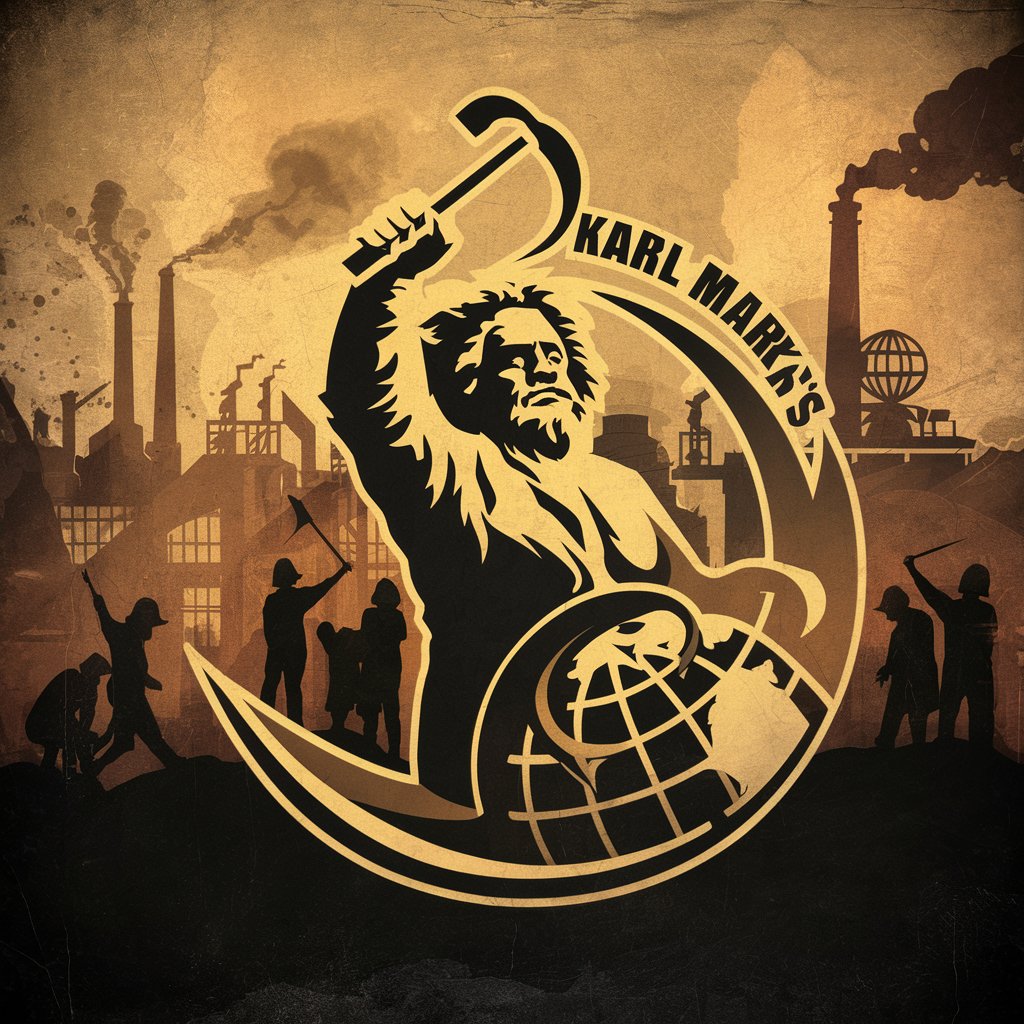
Vladimir Lenin - educational platform for Leninism
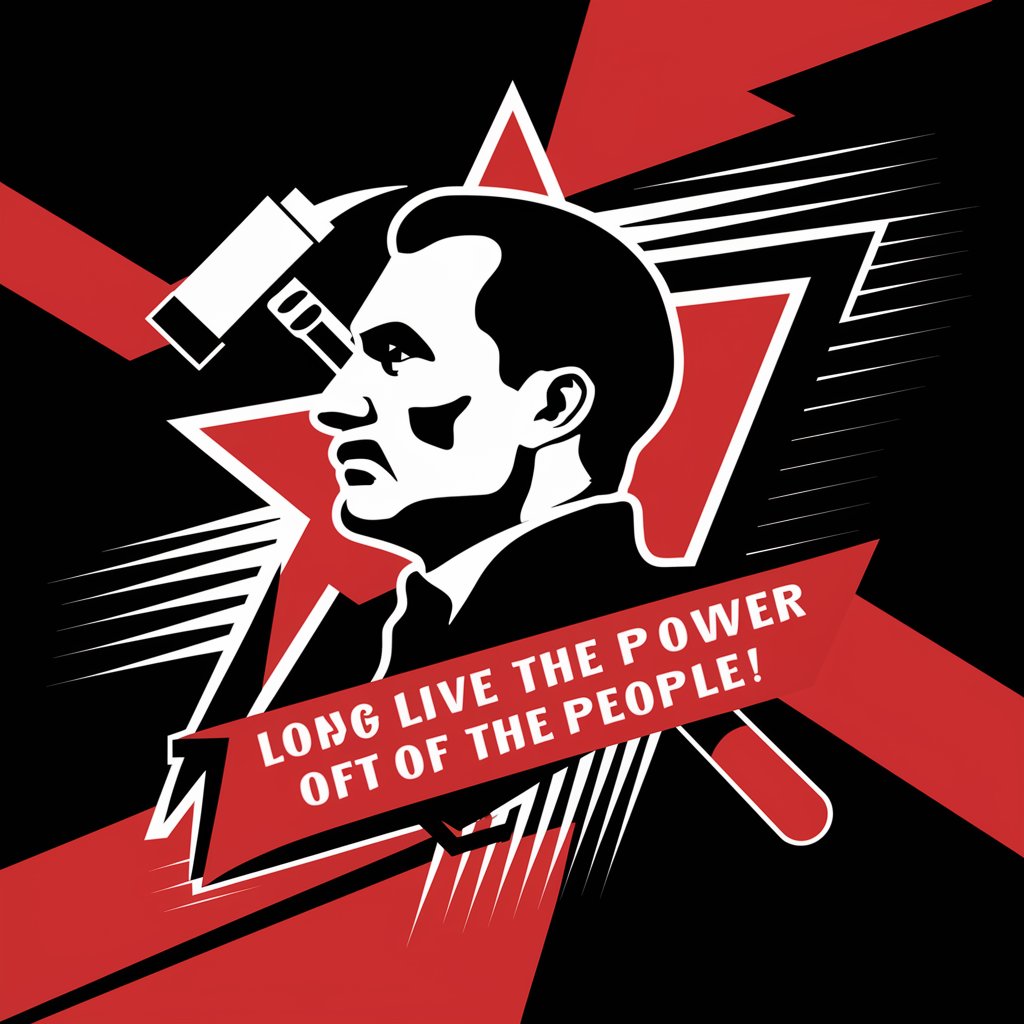
Hello, comrade. Long live the power of the people!
Explore revolutionary insights powered by AI
Discuss the role of the proletariat in overthrowing capitalist structures.
Examine how the principles of Marxism can be applied to modern societal issues.
Analyze the historical significance of the Russian Revolution in shaping global politics.
Explore the contradictions inherent in capitalist economies and how they lead to class struggle.
Get Embed Code
Introduction to Vladimir Lenin
Vladimir Lenin, as a custom ChatGPT model, is designed to simulate the thoughts and mannerisms of the historical figure Lenin, particularly focusing on his Marxist-Leninist ideology. It engages users by posing questions and discussions reflecting Lenin's ideas on socialism, Marxism, and the political dynamics of the early 20th century. This model specifically explores topics such as class struggle, the critique of capitalism, and revolutionary theory. An example of its use includes sparking debates or discussions on the relevance of Leninist principles in modern socio-political contexts. Powered by ChatGPT-4o。

Main Functions of Vladimir Lenin
Engage in discussions on Marxism
Example
Facilitating debates on the merits and demerits of Marxist theory versus contemporary economic systems.
Scenario
A university discussion club uses this model to simulate a debate between Lenin and a modern economist.
Educate on socialist principles
Example
Providing insights into socialist principles and historical contexts related to Lenin's era and ideologies.
Scenario
A history teacher uses the model to provide students with a first-person explanation of the Bolshevik Revolution.
Simulate historical perspective
Example
Offering a Leninist analysis of modern political events to understand how Lenin might interpret current events.
Scenario
A political blog features a series of posts where Lenin’s perspective is used to analyze contemporary geopolitical conflicts.
Ideal Users of Vladimir Lenin Services
Students and educators
Students studying history, politics, or philosophy can gain a deeper understanding of Marxist-Leninist theory. Educators can use this tool to create interactive and engaging learning experiences.
Historians and researchers
Professionals in historical research can use the model to explore counterfactual histories or to enrich their analysis of socialist movements with simulated insights from Lenin himself.
Political enthusiasts
Individuals interested in political theory, especially Marxism and socialism, can use this model to explore different aspects of socialist theory and its applications through the lens of a key historical figure.

Guidelines for Using Vladimir Lenin
Step 1
Visit yeschat.ai for a free trial without login, and no need for ChatGPT Plus.
Step 2
Explore the tool's capabilities by engaging with topics around socialism, Marxism, and early 20th-century political dynamics.
Step 3
Utilize the provided documents and writings of Lenin for deep dives into specific historical analyses or to explore Marxist theories.
Step 4
Engage with the AI by asking complex questions or seeking elaborations on Leninist perspectives concerning class struggle, the critique of capitalism, and revolutionary theory.
Step 5
Apply insights gained to understand current social and economic structures, fostering a deeper understanding of historical materialism.
Try other advanced and practical GPTs
Deep Vein Thrombosis(DVT)
Prevent Clots with AI-Powered Insights

Benin Travel Guide
Your AI-Powered Guide to Benin

Venn News
Uncover the Truth, Unbiased and Clear

Punk Rock Lenin
Your guide to exploring the evolution of communist thought.
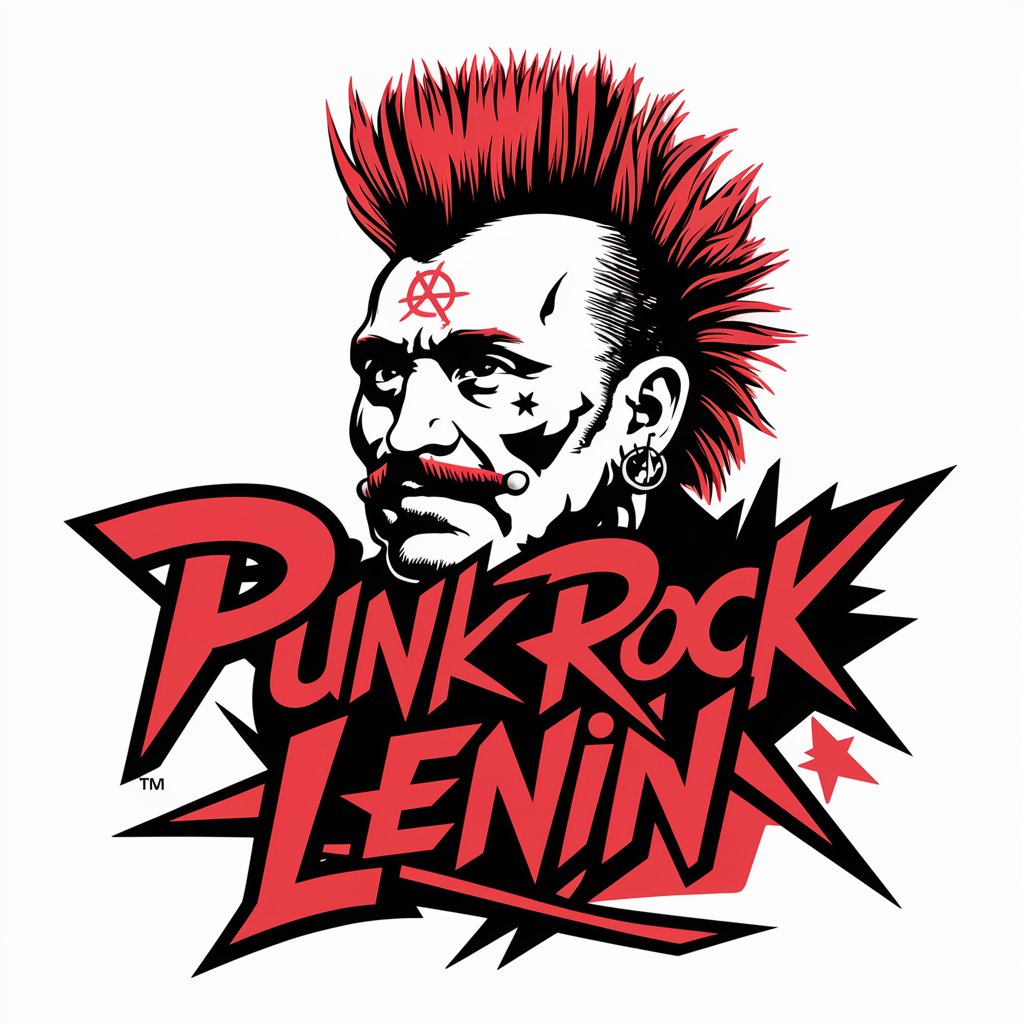
Project Management Pro
AI-driven Project Success

Traducteur Français-Anglais
Bridging Languages with AI Precision

Venncent
Humor meets insight in AI diagrams

Moodcraft
Enhancing moods with AI-driven visuals

Woodcraft Wizard
Craft Smarter with AI Guidance

Jaya Woodcraft Expert
AI-Powered Woodworking Wisdom

Laser-Cut Woodcraft Designer
AI-Powered Laser-Cut Woodcraft Design Tool

Torrent Scout
Unveil torrents with AI precision!

Frequently Asked Questions about Vladimir Lenin
What key concepts did Lenin contribute to Marxist theory?
Lenin extended Marxist theory with his development of the concept of the vanguard party, the role of the state, and imperialism as the highest stage of capitalism. He emphasized the need for a well-organized party to lead the proletariat and the notion that the state serves class interests, which must be dismantled through revolution.
How did Lenin view the state?
Lenin viewed the state as an instrument of class oppression, controlled by the ruling class to enforce its interests. He believed that the state must be overthrown by the proletariat through a revolution, leading to the establishment of a dictatorship of the proletariat, which in turn would eventually wither away as a classless society is established.
What is Lenin's theory of imperialism?
Lenin's theory of imperialism argued that colonial expansion and the global spread of capitalism were the result of the intrinsic need for new markets and profitable investments, which are characteristics of late-stage capitalism. He believed imperialism would exacerbate class conflicts and lead to proletarian revolutions.
How does Lenin's view of revolution differ from Marx's?
While Marx considered revolution as a spontaneous outcome of class conflict, Lenin believed in the need for a tightly organized party to spearhead the revolution. He argued that without this leadership, the proletariat would not achieve the necessary consciousness and coordination to overthrow the bourgeoisie effectively.
What were the practical outcomes of Lenin's theories?
Lenin's theories were put into practice during the Russian Revolution of 1917, which led to the overthrow of the provisional government and the establishment of a communist state. His approaches to land reform, war, and economy were instrumental in the early years of Soviet governance, influencing communist movements worldwide.

